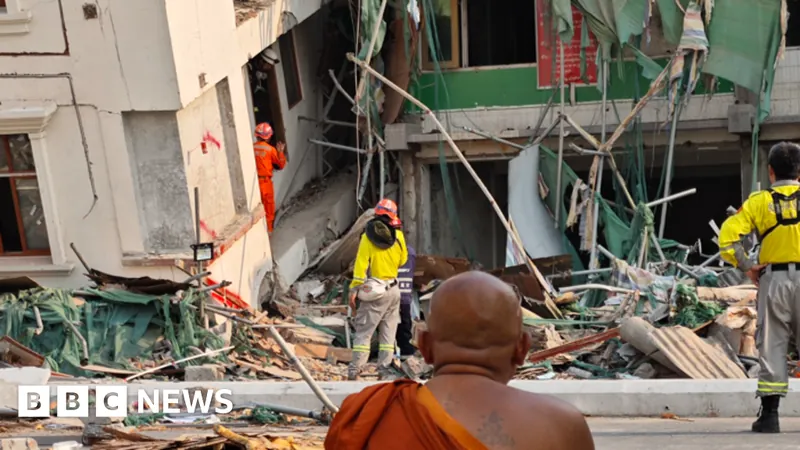
Rubio Addresses Criticism of US Aid Response to Myanmar Earthquake
2025-04-05
Author: Noah
In the wake of the devastating 7.7 magnitude earthquake that struck Myanmar on March 28, U.S. Senator Marco Rubio has come under fire for the U.S. government's limited response to the disaster. As reports confirmed the death toll had risen to 3,354 by April 4, with thousands more injured and reported missing, Rubio defended the American efforts during a NATO meeting in Brussels.
Rubio stated, "There are a lot of other wealthy nations in the world that should also be contributing." He reassured the public of the U.S. commitment, "We're going to do our part. We already have people on the ground, and we will send more resources as needed, despite the challenging circumstances posed by Myanmar's military junta, which has shown a reluctance to cooperate."
Former USAID officials highlighted that the cuts in funding to the agency have hampered immediate response capabilities. Notably, the agency, now overseen by the private sector, has faced significant budget reductions that impact its ability to deploy rescue teams during crises. The White House, responsive to the urgent needs in Myanmar, has attempted to send a Disaster Assistance Response Team (DART), but logistical challenges stemming from previous cuts have limited effective deployment.
"The inability to quickly mobilize a large U.S. rescue team is directly attributed to these funding cuts," argued experts familiar with humanitarian aid in political hotspots. Despite this, Rubio underscored that the U.S. is not the only country responsible for providing assistance. "China and India were among the first to send teams to help in Myanmar, demonstrating that collaboration is essential in these global crises," he added.
Rubio's remarks come against a backdrop of ongoing debates around foreign aid effectiveness. He emphasized a new approach to U.S. assistance: “We will only partner with credible NGOs on the ground that are genuinely delivering help. The bloated bureaucracies that siphon taxpayer money need to end,” he asserted, sparking discussions about the future of U.S. humanitarian aid practices.
With Myanmar facing a catastrophic humanitarian crisis, calls for international solidarity are louder than ever. As countries mobilize their resources, the spotlight remains on the U.S. and its ability to adapt its foreign aid strategies in times of dire need.









 Brasil (PT)
Brasil (PT)
 Canada (EN)
Canada (EN)
 Chile (ES)
Chile (ES)
 Česko (CS)
Česko (CS)
 대한민국 (KO)
대한민국 (KO)
 España (ES)
España (ES)
 France (FR)
France (FR)
 Hong Kong (EN)
Hong Kong (EN)
 Italia (IT)
Italia (IT)
 日本 (JA)
日本 (JA)
 Magyarország (HU)
Magyarország (HU)
 Norge (NO)
Norge (NO)
 Polska (PL)
Polska (PL)
 Schweiz (DE)
Schweiz (DE)
 Singapore (EN)
Singapore (EN)
 Sverige (SV)
Sverige (SV)
 Suomi (FI)
Suomi (FI)
 Türkiye (TR)
Türkiye (TR)
 الإمارات العربية المتحدة (AR)
الإمارات العربية المتحدة (AR)